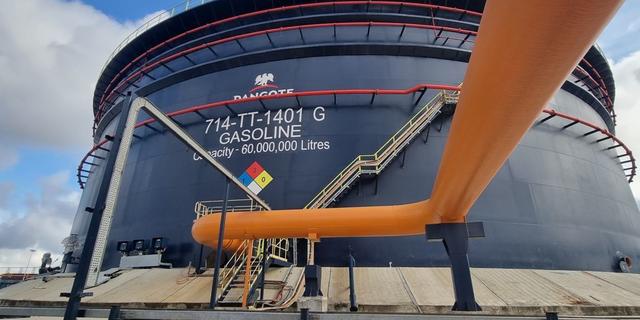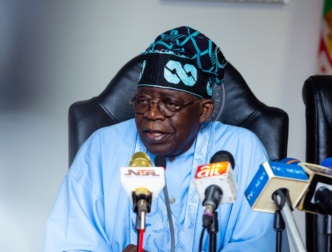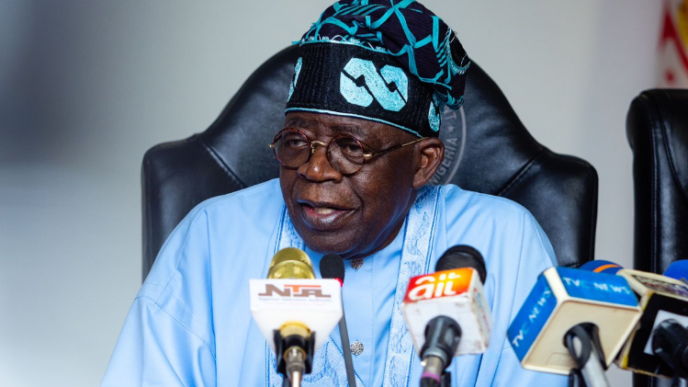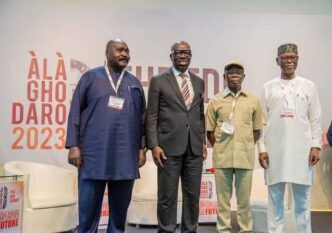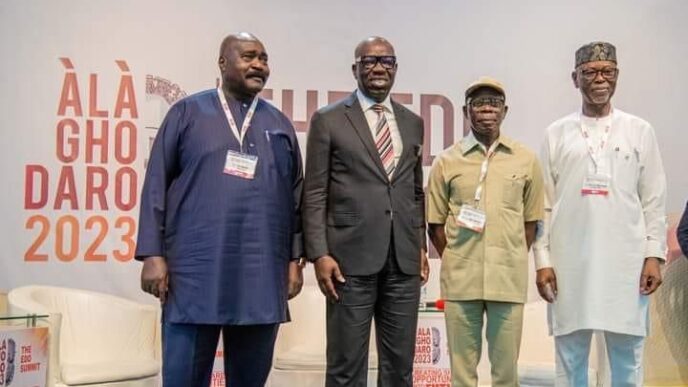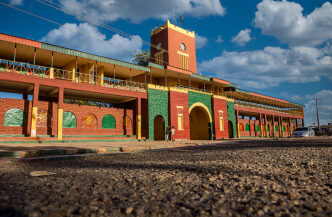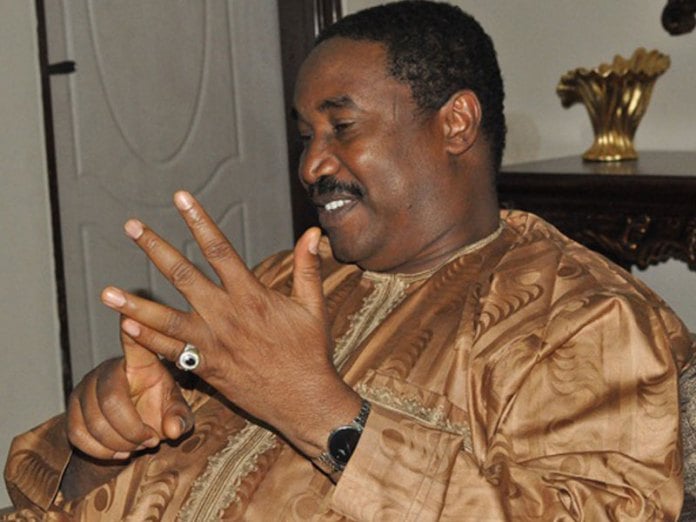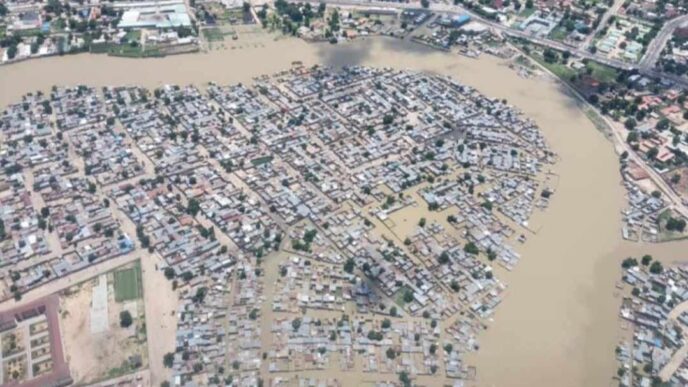Dangote Refinery
BY EYITAYO O. ANDE
An older friend once said to me many years ago, “Do not blame the truth for suddenly making you uncomfortable, blame the lie for making you comfortable as long as it remains”. This statement kept resonating as I ruminated over the hullabaloo on the sale of crude oil between the Nigerian National Petroleum Company Limited (NNPCL) and Dangote Refinery, and with the torrent of criticism, accusations and counter-accusations that ensued for weeks. To put it rather mildly, it seemed like the NNPCL was belligerently trying to say goodbye by all means to Dangote Refinery.
The NNPCL, for decades, has been the ‘elephant in the room’ as far as the socio-political and economic landscapes of Nigeria are concerned. For so long, this public institution and its representatives have been somewhat comfortable with a bouquet of lies or half-truths told to Nigerians, even when they know Nigerians are not stupid and can see through all the phony arguments. They ostensibly required the arrival of a big player in the oil space like Dangote Refinery to suddenly make them uncomfortable, with the realisation that all their garnished lies fed to Nigerians for many years may come to the fore to hunt them.
Over the years, Nigerians have raised concerns and endured what has been termed the biggest scam in Nigerian history; the fuel subsidy, which clearly has been a drain on public finances and an unsurmountable albatross for the nation, with the NNPCL unable to provide to Nigerians, the exact number of litres of petrol consumed in the country daily. In a publication by budgIt on August 17, 2023, titled, ‘Subsidy Removal and the Big question: What is Nigeria’s Daily Petroleum Consumption?’, the GCEO of NNPC, Mr. Mele Kyari was quoted to have said, “At the beginning of 2023, there is no credible data to ascertain the daily consumption of petrol in Nigeria”, while also stating that there is credible data on actual volume of petrol evacuated from the depots. I find this pretty ironic that such discordant tunes would come from Mr. Kyari who is meant to be the custodian of the official statistics for fuel consumption in Nigeria. Honestly, Nigerians deserve better.
Advertisement
Like many Nigerians, I believe that President Tinubu, being the Minister of Petroleum, should have averted the dispute, although his eventual intervention also ended up calming already frayed nerves. Having said that, it must be emphasised that the Tinubu administration scored an economic triumph with the directive by the Federal Executive Council (FEC) authorising the NNPCL to sell crude oil to Dangote refinery and other local refineries in naira rather than in the customary US dollars, which undoubtedly is historic. This was a bold move and marked a total shift in the nation’s economic policy which irrefutably would have sweeping effects on the economy of the country.
The experience for Nigerians has been extremely harrowing and while Nigerians have expressed their pains and sufferings, and rightly so, to the exponential increase in fuel price which is making life more unbearable, and which has increased the cost of living for ordinary Nigerians exponentially. It is expedient to highlight that this recent economic policy will reduce the country’s import dependency which has partly fuelled the seething inflation that is so tough on the generality of Nigerians, especially on the middle class and the poor as their earnings are not able to keep up with it.
It is crucially important to point out that the soaring costs of goods and services, high interest rates, etc, are not the causes of the economic dragon, inflation, ravaging and spiking the Consumer Price Index, but are the manifestations or symptoms of it. The root causes of inflation, as far as the Nigerian context is concerned, are the overspending of government for the wrong reasons most times, the rising public debts, ballooning cost of governance, the ‘corruption pandemic’ at all levels of government, and a combination of the drastic and radical implementation of the oil subsidy removal and devaluation of the naira. Moreover, with the way our economy is currently structured, where we are essentially a consuming nation, it will be extremely difficult for Nigeria to experience any meaningful economic growth and development.
Advertisement
No nation can be economically viable without stimulating domestic production. The country’s very low local productive activities are contributing massively to the inflationary pressures being experienced as Nigeria, even in the twenty-first century, still depends largely on the importation of goods to satisfy local consumption.
The Vice-President, Kashim Shettima, who was a guest early this year at the Vanguard Economic Discourse titled, ‘Reforms in the Era of Global Economic Uncertainties: Whither Nigeria?’, was quoted to have said, “Over $25 billion is used to import petroleum products into the country every year”.
According to data obtained from Statista, a German online platform that specialises in data gathering and visualisation, Nigeria’s total import bill in 2023 was $45.95 billion. This indicates that the nation’s annual petroleum products import bill of $25 billion accounted for 54.4 per cent of the country’s total import bill of 2023. This is a monumental concentration risk where just one economic sector, the oil and gas, accounts for over 50 per cent of Nigeria’s foreign exchange spending.
Needless to say that one of the fundamental reasons the Central Bank of Nigeria (CBN) is threading the needle and battling in its bid to address the free fall of the naira is due to the crippling demand for foreign exchange to fund these petroleum product imports annually, which obviously excruciates with the regulator tussling to keep up. Nigerians should not expect an instant astronomical drop in the pump prices once the products from Dangote Refinery hit the market because whatever price in naira the NNPCL would sell the crude oil to Dangote Refinery and other local refineries would still be predicated on the current exchange rates. The beauty of this arrangement, however, is that the currency demand and pressure on the US dollars to drive these transactions would immediately shift to the naira as Dangote Refinery and other refineries must now buy the naira in order to pay the NNPCL for crude oil, as against the current practice where they are busy sourcing for the scarce dollars to pay the NNPC for crude oil.
Advertisement
Likewise, with over 50 per cent of the country’s import bill now to be facilitated in naira instead of in dollars reduces the ‘dollarisation’ of our economy, checkmating the massive outflow of US dollars from our foreign reserves. This would enable the CBN to effectively intervene in the forex market by adequately funding the banks and authorised BDCs with dollars to address the anticipated demand in the market should Dangote Refinery commence the conversion of some of its naira fuel sales into dollars to service the company’s dollar-denominated loan obligations. Ultimately, the naira is expected to be strengthened leading to a drop in the costs of the country’s imports, which in turn will lower the prices of goods in the market.
Drawing a stark contrast between how NNPC is being run, and how purposeful, professional and business-like other similar government-owned oil companies in other climes like Gazprom, Aramco, ADNOC, Sonangol Group, etc, owned by the governments of Russia, Saudi Arabia, United Arab Emirate and Angola respectively are being administered, evidently shows that the NNPCL has, for many years, been riding on a wave of failure and been fraught with countless problems. A vivid example that all Nigerians are familiar with is how several billions of naira were spent for years now on the turn-around maintenance of the moribund four state-owned refineries while still importing refined petroleum by-products for local consumption, resulting in spending billions of dollars yearly on fuel subsidy.
Equally, a damning report emanated from KPMG some years ago where it was reported that “the NNPCL is a house of corruption”. Also, BBC News emphasised how “Nigeria’s state-owned oil company failed to pay the government $16 billion in a suspected fraud, according to an official audit”.
In the same vein, it was reported how the nation’s oil production has been a matter of disputation between the Nigerian Upstream Petroleum Regulatory Commission (NUPRC) and the NNPC, where the NUPRC reported that Nigeria produced about 1.28 million barrels of oil per day in the first quarter of 2024, while the NNPC argued that about 1.7 million barrels of oil per day were produced in the period under review. This raises grave concerns about the correctness of the crude oil production official data, and the far-reaching effects this has on the management of our nation’s fiscal policies and the attainment of policy objectives of government.
Advertisement
Some fears have been expressed in some quarters about how this economic policy swing would likely exacerbate existing economic challenges by foisting a considerable wrench on the on-going efforts of the government to effectively manage the naira due to the anticipated enormous drop in foreign exchange receipts into the foreign reserves from the oil and gas sector, which is the country’s single most reliable source of foreign exchange. While it is very true that a drop in the country’s forex receipts is looming, this is the time this administration must be intentional in the deployment of the sophistication of intelligence gathering apparatus and personnel at its disposal to subjugate the various forms of corruption; most notably of which is the outright, unabated oil theft which has plagued this sector for decades. However, many would doubt if the current government is able to take such bold steps.
Whilst the government’s policy is a laudable economic initiative because of its attendant positive ripple effects on the broad economy, to consolidate these efforts and replace the foreign exchange to be ‘lost’ by the government as a result of this directive, the government at all levels, it must deploy all the resources within its arsenal to combat the systemic corruption that has beleaguered the petroleum industry for years. The Organisation of the Petroleum Exporting Countries (OPEC) quota for Nigeria, currently at 1.5 million barrels per day, was extended to 2025. However, a report in the Punch Newspaper of July 13, 2024, informed that Nigeria has not met its OPEC supply quota since 2022, stating that to meet the daily requirements of local refineries and that of exports, Nigeria should be producing about 2.5 million barrels per day. Constantly meeting the OPEC quota is crucially vital for the nation to continue to enjoy some generous forex earnings into our foreign reserves required for continuous economic growth and macroeconomic stability. The bar of expectation from Nigerians is set at a crescendo for Mr. President, hoping he effectively executes his mandate and gives Nigerians a sense of what he is going to do with the major issue, corruption, which daily confronts our nation at all levels.
Advertisement
On a final note, for this economic policy shift to make a valid sense and deliver the expected gains, the government needs to keep it real, not go about the old playbook which constantly resorts to the usual political platitudes of ‘we are working assiduously to fight corruption’. If there is ever a time this administration must prove to Nigerians and the international community that it is serious about fighting corruption and the lack of respect for the rule of law in the country as it claims, it is now by addressing the systemic failures inherent in the government-owned oil company, the NNPCL, and all the reported atrocities perpetuated at our various oil fields. The clearest message from Nigerians is, and has always been, the expectation of a zero daylight between what Mr. President recently said at the official unveiling of the Office of the Auditor-General’s Strategic Plan 2024 to 2028 of “being committed to ensuring that the country wins the fight against corruption”, which has become a blight that threatens our very existence as a sovereign nation, undermined the trust of the people and eaten so deep into the fabric of our society, and the action he takes.
Ande, a financial analyst, writes from Lagos
Advertisement
Views expressed by contributors are strictly personal and not of TheCable.
